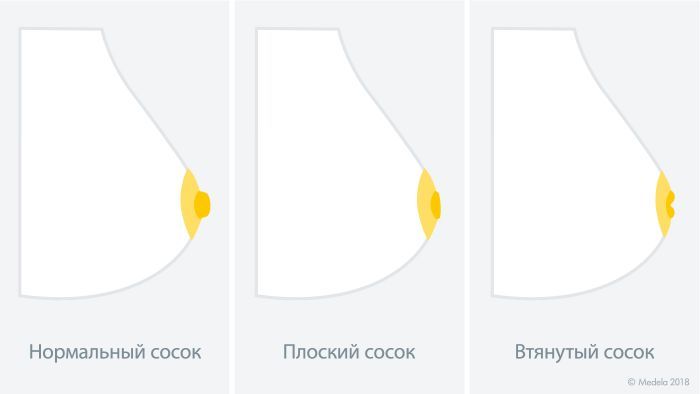
Can I breastfeed with a nipple piercing?
Nipple piercing is becoming an increasingly common piercing for both women and men, both in Newmarket, Ontario and around the world. After childbirth, the question often arises whether breastfeeding is possible with the help of nipple piercings.
The fact is that many of them can successfully breastfeed after piercing the nipples. Although most had no problems at all, there were still some who suffered from clogged ducts, low milk supply, infections, or leakage of milk from the piercing.
Like any piercing, nipple piercings are not without risks and challenges. This quick guide will help you better understand these potential risks and help you navigate breastfeeding with a nipple piercing easily.
Possible Precautions to Consider
- Nipple piercings are often associated with breastfeeding problems.
- The puncture sites should be completely healed before breastfeeding begins.
- Always choose a reputable doctor to minimize complications
- All jewelry must be cleaned and secured to reduce the risk of suffocation.
Does nipple piercing affect breastfeeding?
In some cases, working with a lactation consultant will help those with piercings find the best position for the baby and also help them latch onto the nipple.
However, some minor problems associated with nipple piercings include blocked ducts, mastitis, changes in milk flow, reduced milk supply, increased risk of bacterial infections, changes in nipple sensitivity, and problems continuing to produce milk after the baby is born. weaned
Mastitis/blockage of ducts
Sometimes a piercing causes damage to the milk ducts that help carry milk inside the nipple. Since there are a large number of pores in the nipple, it is very unlikely that all of them can be damaged by one isolated piercing. However, scarring inside the nipple can potentially cause blockage of the duct, which is a real problem.
If milk cannot flow freely from the breast and nipples, blocked milk ducts, mastitis, or abscess may form, which, if left untreated, will reduce the amount of milk in that breast. Keep in mind that multiple piercings of the same nipple increase the chance of scarring.
What to do if you don't have enough milk?
If a nipple piercing causes low or reduced milk flow, this can result in an underweight baby not getting the proper nutrition needed for adequate development. Therefore, it is recommended that you seek the advice of an IBCLC lactation consultant to maximize the amount of milk available to your baby. The lactation consultant will also conduct regular weight checks to make sure the baby is getting enough milk.
If problems are due to one pierced nipple, there is the option of unilateral breastfeeding from a breast that is not experiencing problems. Since most, if not all, feedings will occur on one side, the breast will naturally increase milk production to compensate for the inefficiency of the other breast.
Are milk flow problems a problem?
Due to the fact that the piercing pierces the tissue of the nipple itself, milk can leak out at the piercing site, which can cause problems with the overall flow of milk in general. It can also lead to a faster flow, which can make it difficult for some babies to feed.
In addition, since nipple piercings can scar tissue, there is a possibility of damage or blockage of one or more milk ducts, which will slow down the flow of milk and result in disappointment for the baby.
Is there a risk of infection?
Since mastitis is common in breastfeeding with nipple piercings, infections are also more likely. Therefore, it is important to be vigilant for any signs of infection or pain coming from the nipple area, including soreness, redness, pain, or engorgement. If the areas are indeed infected, breastfeeding is not recommended until the area has healed and further advice from your healthcare provider is recommended.
Will I have sensitivity issues?
Some report loss of sensation in the nipples shortly after they are pierced, while others say that the area has become very sensitive. In persons with a decrease or loss of sensitivity, milk secretion was sometimes observed. Conversely, breastfeeding can become painful for people with hypersensitivity.
Final Thoughts: Is Nipple Piercing Harmful for Breastfeeding?
Like any other type of piercing, nipple piercings can carry the risk of infection. However, nipple piercings can also carry the risk of bacterial infection, mastitis, blocked ducts, abscess, scar tissue, tetanus, HIV transmission, and high prolactin levels.
In general, nipple piercings are not harmful to breastfeeding as long as you choose reputable licensed professionals and strictly follow all care advice. Seeking the advice of an experienced lactation consultant also contributes to successful, safe and comfortable breastfeeding.
If you have additional questions or concerns and are located in the Newmarket, Ontario area, please contact the professionals at Piercing.co for advice and support. The Pierced.co team has a lot of experience with nipple piercings and can make sure you understand your options.
Piercing studios near you
Need an experienced piercer in Mississauga?
Working with an experienced piercer can make a big difference when it comes to your piercing experience. If you are in
Mississauga, Ontario and have any questions about ear piercings, body piercings or jewelry, call us or stop by our piercing studio today. We would like to help you understand what to expect and help you choose the right option.
Leave a Reply